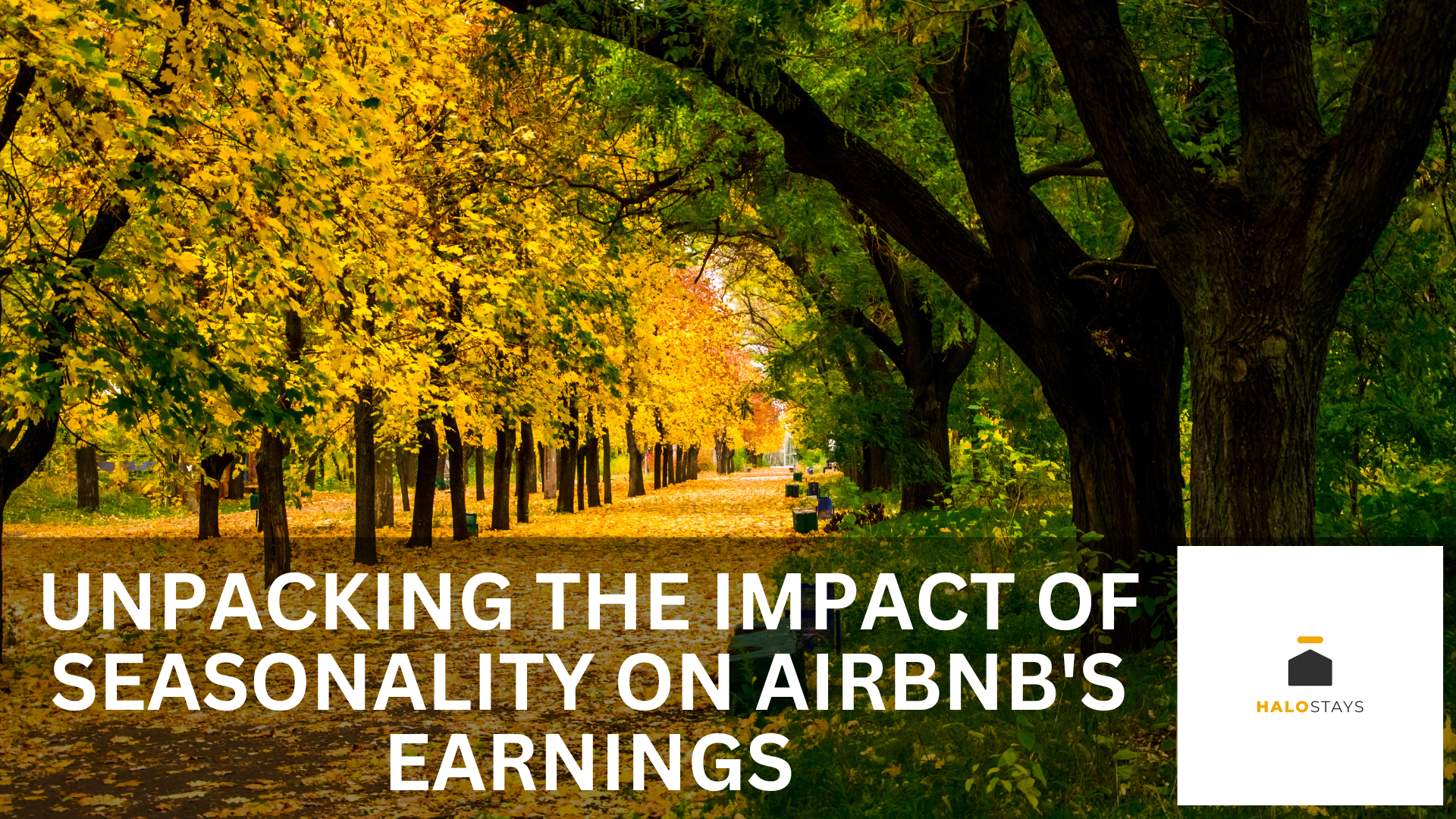
The article titled “How Seasonality Drives Airbnb’s Volatile Earnings: Skift Research Analysis” explores the significant influence of seasonality on Airbnb’s financial performance. By delving into the dynamic nature of demand patterns throughout the year, the analysis reveals how these fluctuations can lead to substantial swings in the company’s profitability.
Seasonality and its Amplified Effects

Seasonality plays a pivotal role in shaping Airbnb’s earnings, with fluctuations in demand causing revenue and profit to vary drastically across different periods of the year.
This amplification arises from the inherent characteristics of the travel industry, as travelers tend to be influenced by various factors such as weather, holidays, and school vacations.
Demand Fluctuations
Seasonality amplifies the fluctuations in demand for Airbnb accommodations. During peak seasons, such as holidays or popular vacation periods, there is a surge in demand as more travelers seek temporary rentals. Conversely, during off-peak seasons, demand decreases, resulting in lower booking rates.
Pricing Power
The amplified effects of seasonality also extend to pricing. During peak seasons, when demand is high, hosts can command premium prices for their listings, maximizing their earnings per booking. However, during off-peak seasons, hosts may need to adjust their pricing strategy to attract bookings and maintain occupancy rates.
Occupancy Rates
Seasonality affects occupancy rates on Airbnb. During peak seasons, hosts often experience high occupancy rates as travelers flock to popular destinations. This can lead to increased competition among hosts and a higher likelihood of fully booked calendars. In contrast, off-peak seasons can present challenges, with lower occupancy rates as demand decreases.
Profitability Swings
The amplified effects of seasonality can lead to significant swings in profitability for hosts on Airbnb. Peak seasons with high demand and premium pricing can result in substantial profits, allowing hosts to capitalize on the influx of travelers. Conversely, off-peak seasons may pose profitability challenges as hosts may need to lower prices or explore alternative strategies to attract bookings.
Regional Disparities
Seasonality can vary significantly across different regions and locations. Some destinations may experience more pronounced seasonal swings due to factors like climate, local events, or tourist attractions. Hosts in popular tourist destinations heavily rely on peak seasons to generate most of their revenue, while those in business-centric cities may experience more consistent demand throughout the year.
Operational Challenges
Seasonality amplifies operational challenges for hosts and Airbnb. During peak seasons, hosts may face increased demands in terms of communication with guests, property management, and maintenance. Managing a high volume of bookings and ensuring a smooth guest experience can be more challenging during these busy periods.
Planning and Forecasting
The amplified effects of seasonality make planning and forecasting crucial for hosts and Airbnb. Understanding the patterns of demand throughout the year enables hosts to make informed decisions regarding pricing, marketing strategies, and resource allocation. It also allows Airbnb to anticipate shifts in supply and demand and optimize its platform’s functionality accordingly.
Final Thoughts
As a host on Airbnb, it is important to acknowledge the impact of seasonality on your business. The seasonal fluctuations in demand for accommodation can have a significant influence on pricing, occupancy rates, and overall profitability. Therefore, it is essential to understand and manage these effects to optimize your earnings, maintain high occupancy rates, and deliver a positive guest experience throughout the year. By recognizing and effectively managing the challenges of seasonality, you can position yourself as a successful host on Airbnb.
One way to manage these amplified effects is by having a flexible pricing strategy. Adjusting your prices to match demand during peak and low seasons can help you maintain high occupancy rates and maximize your earnings. Additionally, providing added value to your guests through personal touches and exceptional customer service can set you apart from other Airbnb hosts, encouraging more positive reviews and attracting repeat bookings. Overall, being aware of the seasonality-induced fluctuations and having a proactive approach can make all the difference in successfully hosting on Airbnb.

